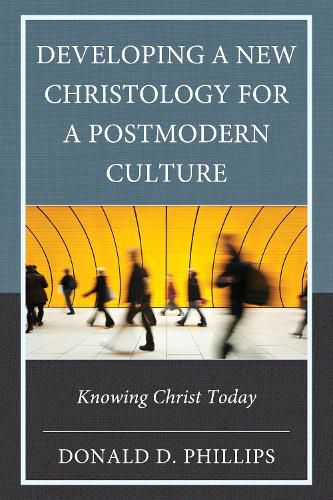Readings Newsletter
Become a Readings Member to make your shopping experience even easier.
Sign in or sign up for free!
You’re not far away from qualifying for FREE standard shipping within Australia
You’ve qualified for FREE standard shipping within Australia
The cart is loading…






In an increasingly secular, contemporary (postmodern) culture, many people have no understanding of Christianity or the importance and relevance of Jesus Christ. As a result, the Church's traditional liturgical texts, as well as the church-oriented language often used by Christians to explain the Gospel, are not helpful or accessible to those outside the Church. To respond to this challenge, the author uses a semiotic method, based on the work of Robert Schreiter, to engage and describe the nature of contemporary postmodern culture. Using a narrative approach to the Gospels based on the work of the 20th century historical theologian, Hans Frei, the author derives a more modest, open-ended Christology which will 'converse' with its cultural context and continue to be interpreted within contemporary Christian communities. Using social values analysis from a particular contemporary culture, the author then forms biblical statements about the person of Jesus Christ that are congruent with those values, and uses them to construct a new Eucharistic Prayer. The result is a liturgical prayer that is accessible and enables members of that local culture to be embraced by, and to embrace, the identity of Jesus Christ.
$9.00 standard shipping within Australia
FREE standard shipping within Australia for orders over $100.00
Express & International shipping calculated at checkout
In an increasingly secular, contemporary (postmodern) culture, many people have no understanding of Christianity or the importance and relevance of Jesus Christ. As a result, the Church's traditional liturgical texts, as well as the church-oriented language often used by Christians to explain the Gospel, are not helpful or accessible to those outside the Church. To respond to this challenge, the author uses a semiotic method, based on the work of Robert Schreiter, to engage and describe the nature of contemporary postmodern culture. Using a narrative approach to the Gospels based on the work of the 20th century historical theologian, Hans Frei, the author derives a more modest, open-ended Christology which will 'converse' with its cultural context and continue to be interpreted within contemporary Christian communities. Using social values analysis from a particular contemporary culture, the author then forms biblical statements about the person of Jesus Christ that are congruent with those values, and uses them to construct a new Eucharistic Prayer. The result is a liturgical prayer that is accessible and enables members of that local culture to be embraced by, and to embrace, the identity of Jesus Christ.